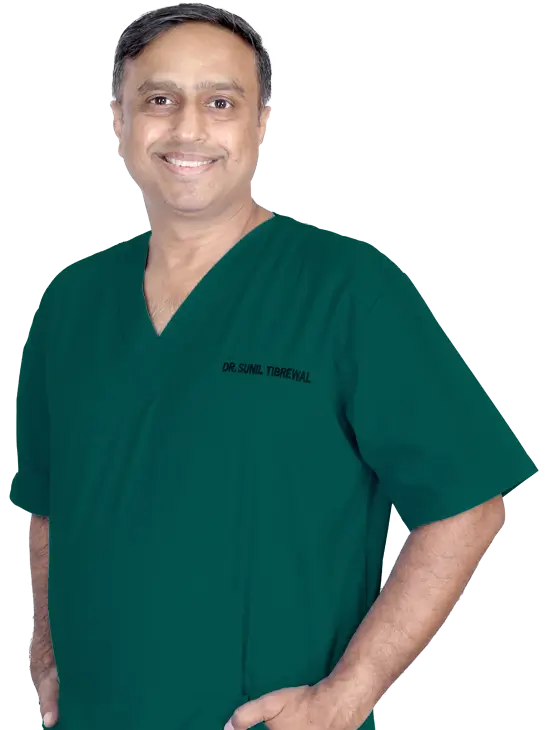


Are you suffering from Salivary Gland Disorder?
Don't ignore your symptoms and get immediate medical attention Today !!
Book an Appointment
What is Salivary Gland?
If you have been diagnosed with salivary gland cancer, having a little knowledge about the salivary glands will help you communicate with your doctor regarding surgery or other elements of your care.
Salivary glands secrete saliva, which assists in digestion, moisturises your mouth, and benefits your oral cavity. It contains 99.5% water along with electrolytes, enzymes, glycoproteins, mucus, and antibacterial compounds. Salivary stones or an infection in the salivary ducts might lead to blockage, which ends up requiring gland removal surgery.


Salivary Glands Types
Salivary glands are divided into two types as per their size and functionality: Major salivary glands and Minor salivary glands. There are three types of major salivary glands present on each side of the face and mouth.
Parotid gland
Submandibular gland
Sublingual gland
All across the mouth and aerodigestive tract, there are around 800 to 1,000 tiny, unnamed salivary glands. These glands can only be seen under a microscope, unlike the larger salivary glands. The majority are located in the larynx, nose, sinuses, cheeks, tongue, and roof of the mouth, in addition to the lining of the lips, tongue, and mouth.
Salivary Gland Surgery Procedure
Doctors use surgery to access the gland and remove a gland tumour, also known as a sialendoscopy. In this procedure, they either remove the infected part or remove the whole gland. If the patient is not a candidate for surgery, then doctors also use radiation therapy or chemotherapy to kill the cancerous cells through powerful radiation beams or medications, respectively.
What are the common disorders affecting the salivary glands?
Salivary gland stones: Also known as sialoliths, salivary gland stones are formed from salts found in saliva. They are usually caused by dehydration or medications that cause dry mouth. When the ducts are blocked, saliva backs up into the gland, resulting in discomfort and swelling.
Salivary gland swelling: A common sign of salivary gland dysfunction, which results in decreased saliva production, is salivary gland enlargement. It is also a hallmark symptom of a salivary gland tumour (cancerous or non-cancerous).
Salivary gland infection: Commonly known as sialadenitis, is caused by a bacterial infection in the salivary glands, most notably in the parotid glands. Sialadenitis results in an uncomfortable and painful lump in the gland and foul-tasting pus in the mouth.
Salivary gland tumors: Most salivary gland tumours are non-cancerous, such as adenoma, oncocytoma, ductal papilloma, myoepithelioma, and Warthin’s tumor, but there are also some cancerous glands, such as mucoepidermoid carcinomas, adenoid cystic carcinomas, acinic cell carcinomas, polymorphous adenocarcinomas, and secretory carcinomas, which can only be treated by removing the whole mass of the gland.
List of Salivary Gland Surgeries:
- Parotid Gland Surgery: Surgery to treat the parotid gland without harming the ‘facial nerve.’
- Submandibular Gland Surgery: A surgery used to treat sialorrhea, a condition that can affect people with neurological issues, also for tumours and stones.
Cost of Salivary Gland Surgery
The cost of salivary gland surgery varies depending on the size of the tumour, the affected gland, the patient's co-morbidities, and a variety of other factors. The average cost of salivary gland surgery in India ranges from 80,000 to 1,50,000 INR including hospitalization and medications.
Remember, it is no longer necessary to remove your entire salivary gland if the stones are removed at their benign stage.
Salivary Gland Surgery By Dr. Sunil Tibrewal
Dr. Sunil Tibrewal is one of the most highly experienced sialendoscopic surgeons, and he has been performing these advanced surgeries for more than 15 years using high-quality treatment and the latest technology.
Contact us to know more about the salivary gland surgery we provide, our specialties, and many more options. We are a group of specialists with thousands of hours of complex surgery experience who are known for providing exceptional value to our patients. We assist you at every stage and take into account all the nuances of medical procedures.
Reviews & Feedbacks
Comments from people treated by Dr. Sunil Tibrewal.


Sarita Kataruka








Sutanuka Bhowmik








Archit Kayal








Kritika Saraf








Kiran Singh






Why Choose Dr. Sunil
Senior Surgeon
Dr. Sunil Tibrewal (MBBS, MS, DMB, MRCH, MNAMS, FIAGES) is a qualified specialist with 15+ years of surgical experience.
Advanced Technology
Dr. Sunil Tibrewal uses modern & cutting-edge medical technologies to provide high quality healthcare services.
Complete Care
Dr. Sunil Tibrewal provides assistance and care at every step in your surgical journey i.e., from consultation to cure
